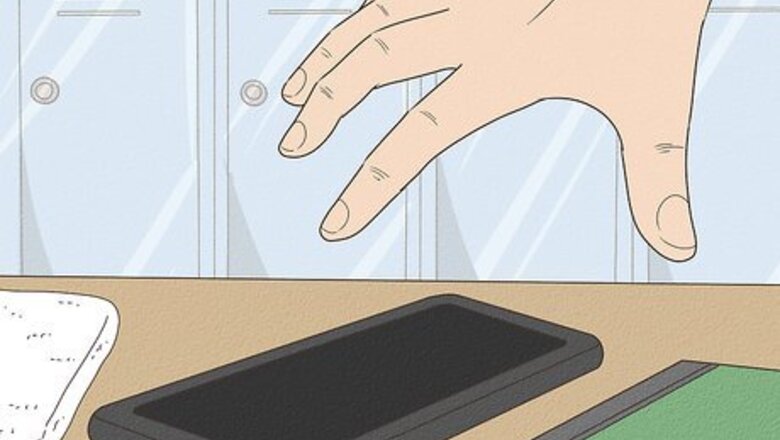
views
X
Trustworthy Source
PubMed Central
Journal archive from the U.S. National Institutes of Health
Go to source
Often, people with kleptomania have uncontrollable urges to steal and receive a high from it. There is no cure for Kleptomania, but it is a manageable condition. You can help someone with kleptomania by helping them acknowledge that they have a problem, seek psychological treatment, and work on focusing on other parts of their life.
Acknowledging the Problem
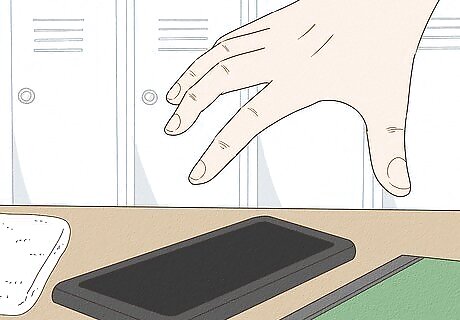
Recognize the symptoms. Kleptomania may show itself in different ways depending upon the individual. It is important to understand the symptoms of kleptomania versus actions such as shoplifting to help ensure the individual gets the proper recognition and help. Symptoms include: A powerful urge to steal items of little need or use A feeling of increased anxiety or arousal leading to the theft Gratifying or pleasing feelings during the theft Shame and remorse after the theft Stealing that is not rooted in gain or a sense of control, but simply in impulse Stealing episodes that happen without planning that may not be recognized by the individual until after theft is committed

Help the person recognize they have a problem. A person with kleptomania may not realize they have a problem. Kleptomania is an addiction, just like substance abuse, so they may think stealing occasionally is not a big deal. They may not realize their stealing has gotten out of control. Approach the person and help them realize they have a problem. Remember that kleptomania is a mental illness. Be calm, supportive, and compassionate with the person, even if you have been hurt by them. Yelling or getting mad is not going to accomplish anything. Try saying, “I’ve noticed that you steal things and that you are doing it more. These actions can lead to legal trouble. I believe you have a problem, like kleptomania. I care about you and want to help.”

Explain the consequences. You may want to talk to the person about the risks and consequences of stealing. If they haven’t gotten caught yet, they may not understand the reality of the consequences. Keep a supportive and calm tone as you discuss this and avoid accusing. You can talk about how stealing can lead to arrest, monetary or legal consequences, the loss of a job, or loss of trust. You may say, “Stealing is illegal and a serious offense. You have been lucky so far, but you may end up with a large fine costing tens of thousands of dollars or jail time. That would have a huge negative impact on your life.
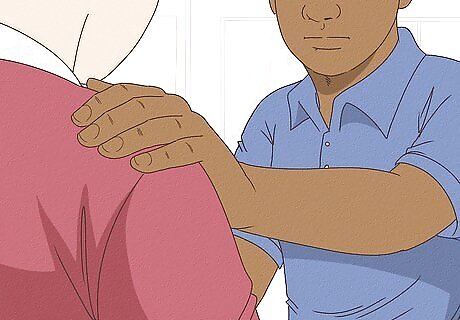
Avoid making the person feel embarrassed. Many times, a kleptomaniac won’t get treatment because they feel scared, embarrassed, or ashamed of their actions. You must understand that it is extremely difficult for people to treat and get over kleptomania on their own. When you talk to the person, refrain from making them feel worse about their condition. For example, you may want to say, “I know that you steal and understand it is an uncontrollable impulse. I know things trigger you, and that you feel elation after you do it. However, kleptomania is a serious condition with severe consequences.”
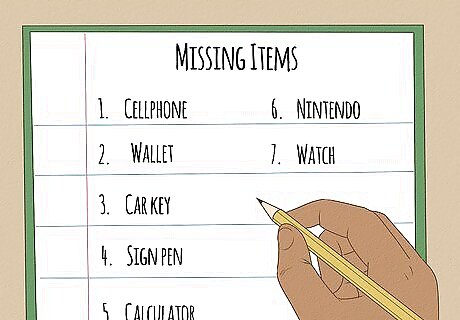
Keep a list of stolen items. If the person is stealing things so that you are aware of it, start keeping a list of when and what they steal. You can use this to help draw attention to their problem. You may also want to encourage them to keep a list of when they steal. For example, if the person admits to stealing but doesn’t think they do it often, tell them to write down when and what they steal. This can help them see a developing pattern of behavior.
Encouraging Treatment

Suggest they seek treatment. If someone you know has kleptomania, you should encourage them to seek medical treatment. Kleptomania is not curable, but a person can take medication or undergo therapy to help with the urges and symptoms. Kleptomania is diagnosed by a doctor or psychologist. The doctor will ask the person a series of questions, such as how their impulses make them feel and what kinds of situations trigger them to steal. Try saying, “I care about you. You have gotten in legal trouble once because of your stealing, and next time it could be very serious. Kleptomania can be overcome, and I think you can do it. I think you should seek treatment.”

Consider medication. There is no standard treatment for kleptomania. However, a person may benefit from medication if there are other issues underlying the kleptomania, like depression, anxiety, or OCD. Help the person decide if medication is an appropriate treatment option for them. The doctor may prescribe an antidepressant, such as a selective serotonin reuptake inhibitor (SSRI), which have limited success in treating kleptomania. Opioid antagonists may help because they are addiction medications that decrease urges and pleasure associated with addiction.

Encourage psychotherapy. Psychotherapy is a common treatment for kleptomania. Encourage the other person to seek out therapy to help with their symptoms. Cognitive behavioral therapy (CBT) is used to treat kleptomania. The therapist may make the person imagine the negative consequences of stealing. They may have to visualize that they are being caught while stealing and then visually walk through the negative consequences, like going to jail. This process, called covert sensitization, helps the person associate the urge with a negative consequence. Aversion therapy teaches a person with kleptomania to create some sort of uncomfortable situation for themselves when faced with a compulsion to steal. This uncomfortable condition makes it easier to resist the temptation to steal. The person may also be taught relaxation techniques to help them learn to control impulses.

Suggest support groups. People with kleptomania are often treated through support groups. Support groups can be used while undergoing psychotherapy or continued after psychotherapy is no longer needed. Support groups help a person with kleptomania cope with stress and triggers so they can avoid relapse. Support groups offer understanding and compassion for the person with the addiction. It can help them have a successful recovery by helping them not get buried beneath feelings of shame or embarrassment.
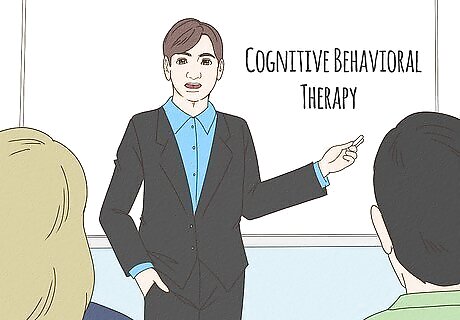
Try group therapy. Group therapy may also help the person. Traditional group therapy places the person into a small group led by a trained mental health professional. They practice therapeutic approaches, such as CBT or interpersonal therapy, in a safe environment to help with recovery. Family therapy may be needed if the person has damaged relationships with their family or if family troubles are a trigger for the kleptomania.
Following Through With Treatment
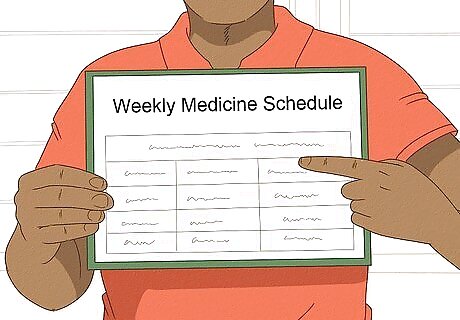
Help the person stick to their treatment plan. One way you can help a person with kleptomania is to encourage them to follow their treatment plan. Especially at first, it may be difficult for the person to commit to therapy or resist their impulses. Help support them during this time. For example, you can help the person set up a schedule to take their medication. If they don’t have a way to therapy, offer to drive them to their sessions. Remind the person that relapses occur. That doesn’t mean they should stop their treatment. Continuing with treatment after a relapse is an important part of sticking to recovery.

Identify triggers. Some people steal when they are triggered by something. This trigger may give them the impulse or urge to steal. It could be a thought, emotion, or situation that triggers them. Help them figure out what triggers them so they can work on avoiding those triggers or being able to cope with the feelings when they arise. For example, feelings of stress, loneliness, or sadness may trigger kleptomania. They may be suffering from depression, which leads to stealing, or they may have a substance abuse problem that feeds into their stealing.
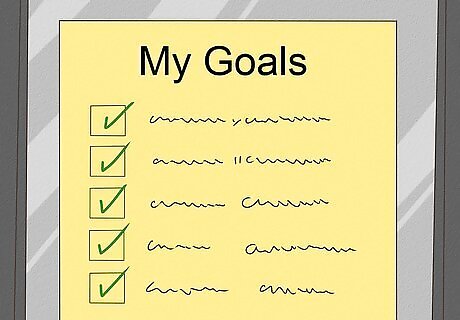
Help the person set goals. The person should set goals once they start treatment. This helps them stay focused and be motivated to achieve something. These goals can be anything from steal less, pay off their debt, or fix relationships. For example, the person may set short-term goals where they use relaxation techniques and CBT exercises learned in therapy to overcome impulses. They may also want to apologize to people they hurt and pay off any debt. Their long-term goals may be to stay stealing-free, build trust with others, start a new hobby, and build their finances back up.
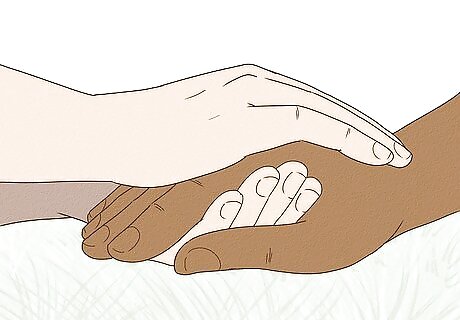
Work on building trust. Stealing leads to broken trust. Even if the person has never stolen from you, you may not trust them because of their actions. If the person has stolen from others, they may have lost trust in the person. Help the person work on building trust with people so they can repair damaged relationships. Sticking to treatment is one way to help build trust. Committing to a lifestyle where they don’t steal is another way. Encourage the person to be be responsible, follow through with commitments, and keep their word.
Providing Support
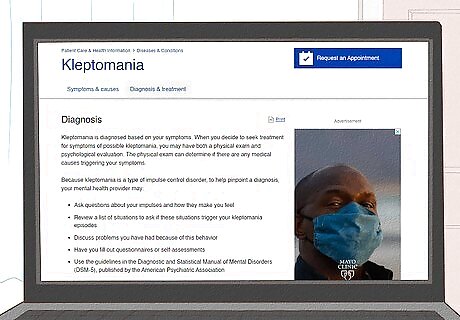
Learn about kleptomania. Another way you can help and support someone with kleptomania is to learn as much about the condition as you can. Often, it stems from underlying problems, like impulse control or anxiety. Educating yourself about kleptomania, triggers, symptoms, and treatment can allow you to help the person better. There are many websites and books you can read to help you understand kleptomania. You may also consider speaking with a doctor or psychologist about the condition.

Encourage the person to engage in healthy hobbies. Part of the reason why people steal is because they get a rush of euphoria from it. Help the person find alternate ways to get the same good feeling that they get from stealing. Help them find hobbies or other activities to participate in. For example, the person may instead focus their energy into making crafts, learning to cook, or trying something they’ve never tried before.

Suggest doing an activity together. Another way to help the person is to help them stay active and engaged. This can help them focus on something else, like socializing, instead of the impulse to steal. If they have the impulse to steal, they may be able to overcome it easier if they are doing something else. You may want to keep them away from places they may be triggered to steal from. If they cannot go into a store without stealing, don’t take them to the mall. For example, suggest that you go to a movie, to dinner, or to a coffee house. You can go bowling. You may even suggest that you volunteer together.

Make a pact to exercise together. Exercise can help reduce depression and anxiety symptoms and increase endorphins, the chemicals that make you feel good. Exercise may help them feel as good as they do when they steal. If the person doesn’t want to exercise alone, exercise with them. You can join a gym or walk at a local track. Try doing something adventurous, like going hiking, mountain climbing, or kayaking. Take classes together, like karate, kickboxing, or dance. Yoga or Tai Chi is great exercise while also providing stress relief benefits.

















Comments
0 comment